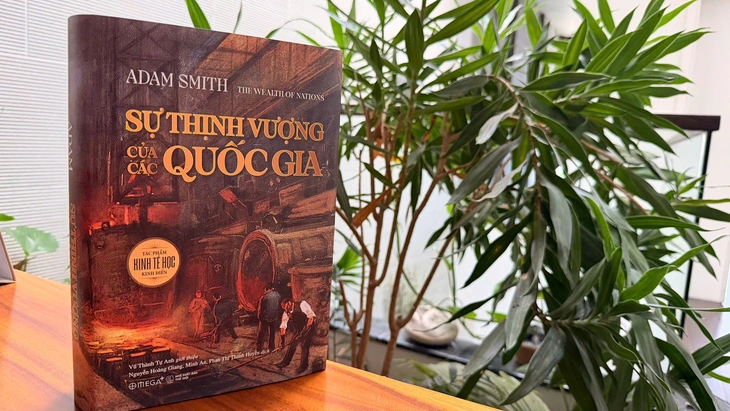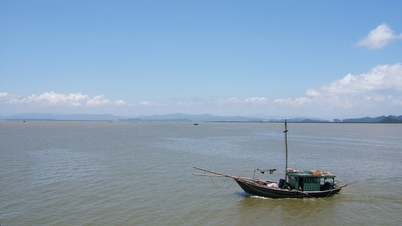
Obviously the answer is different for everyone. Moreover, this work is very selective in its audience, but if you want to admire a vivid picture of how the economy works through a timeless lens to decode the fundamental dynamics of the world, not only in the past but also in the present and the future, then The Wealth of Nations is a work that cannot be missed.
Nearly 250 years on, this work still illuminates the big questions we face today: protectionism or liberalization? Investing for long-term growth or short-term consumption? Where should the state stop so that the market can exert its power without losing fairness and efficiency?
The father of modern economics
Conceived in the context of the Industrial Revolution, The Wealth of Nations explains how nations become wealthy through production, trade, and economic freedom.
The book was a turning point in economic thinking, shaping academic discourse for more than a century and continuing to exert a lasting influence on both classical and modern economics, not only inspiring countless scholars but also earning Adam Smith the title of "father of modern economics".
In this monumental classic, Adam Smith made a "paradigm revolution." He systematized the analysis of production, pricing, distribution, international trade, and the role of government policy into a unified theory.
The wealth of nations was the foundation of classical economics, directly influencing the greatest minds of later times, from David Ricardo to ideological opponents like Karl Marx.
To understand Adam Smith is to understand the roots of economic debates, to stand on the shoulders of giants and look out at the world both past and future.
For policymakers, Adam Smith's message remains alive and well.
He rejected the prevailing mercantilism, asserting that national wealth lay not in gold reserves or trade surpluses but in the total output and standard of living of the people.
His criticism of tariffs and protectionism still resonates in the context of the current trade war.
The depth of Adam Smith's thought
Adam Smith also set out a clear but limited role for the state: to protect the nation, administer justice, and provide public goods that cannot be undertaken by the private sector.
He presents a vision to shed light on the long-standing debates about the relationship between the state and the market, between business and morality, which are often seen as opposite poles, but which for Adam Smith constitute an organic whole, in which moral standards and institutions of justice will ensure the sustainable development of the economy, while creating "universal prosperity" for all strata of society.
Modern political economists also emphasize the depth of Adam Smith's thought - which is sometimes simplified in popular interpretations. Adam Smith did not advocate a wild, immoral capitalist economy.
Adam Smith was also a humanistic moral philosopher. He assumed that free markets must exist in a context of moral standards and natural freedom limited by justice. He also acknowledged the phenomenon of market failure, so the role of the state is necessary.
Reading The Wealth of Nations is to go back to the roots of modern economic thinking – to understand why heated debates about trade, globalization, and the role of government keep repeating themselves, in the same spirit: how to make societies more prosperous. It is also to absorb the thinking, to dialogue with a great mind, and to find profound answers to the challenges of our time.
That must be why this book still makes us think, question and find answers - even in the 21st century.
Source: https://tuoitre.vn/vi-sao-chung-ta-van-dang-hoc-tu-adam-smith-20251011233714576.htm


![[Photo] Solemn opening of the 1st Government Party Congress](https://vphoto.vietnam.vn/thumb/1200x675/vietnam/resource/IMAGE/2025/10/13/1760337945186_ndo_br_img-0787-jpg.webp)

































![[Photo] General Secretary To Lam attends the opening of the 1st Government Party Congress](https://vphoto.vietnam.vn/thumb/1200x675/vietnam/resource/IMAGE/2025/10/13/1760321055249_ndo_br_cover-9284-jpg.webp)










































































Comment (0)